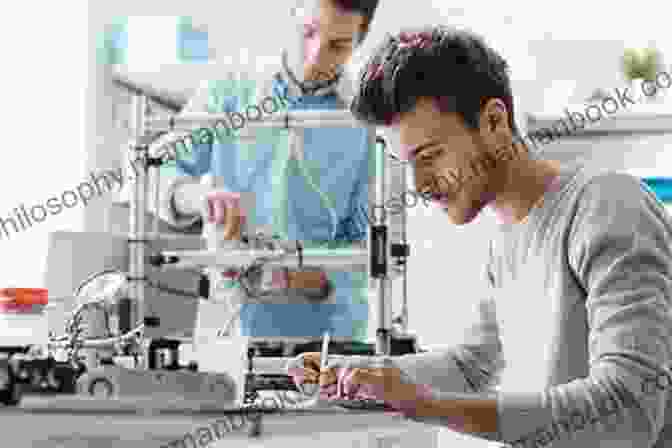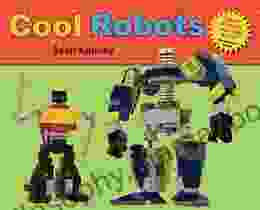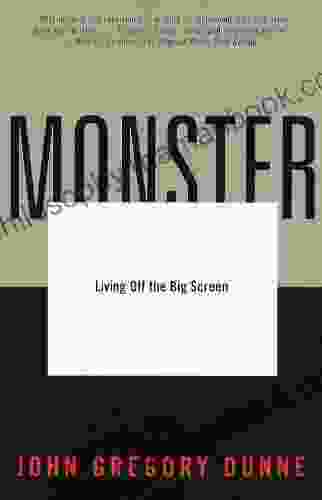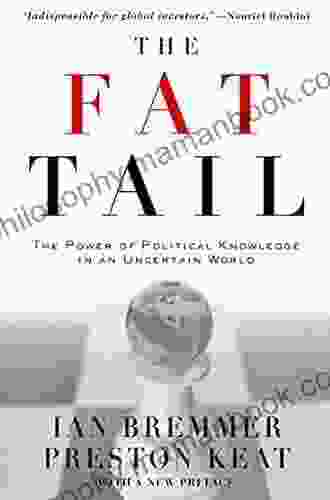Engineering Education for the Next Generation: Shaping the Future of Innovation and Problem-Solving


Engineering education stands at a pivotal juncture, facing the imperative to prepare the next generation of engineers to confront the unprecedented challenges and opportunities of the 21st century. The rapidly evolving technological landscape, globalization, and climate change demand a re-examination and re-imagination of engineering curricula and pedagogical approaches. This article delves into the pressing need for engineering education reform, exploring emerging trends, innovative strategies, and transformative methodologies to equip aspiring engineers with the essential knowledge, skills, and mindset to thrive in the dynamic and interconnected world of tomorrow.
4.7 out of 5
| Language | : | English |
| File size | : | 157094 KB |
| Text-to-Speech | : | Enabled |
| Enhanced typesetting | : | Enabled |
| Word Wise | : | Enabled |
| Print length | : | 357 pages |
| Screen Reader | : | Supported |
| Mass Market Paperback | : | 304 pages |
| Lexile measure | : | NP500L |
| Item Weight | : | 4.8 ounces |
| Dimensions | : | 4.19 x 0.65 x 6.88 inches |
The Changing Landscape of Engineering
The engineering profession has undergone profound transformations over the last few decades, driven by technological advancements, globalization, and societal shifts. The emergence of artificial intelligence (AI),robotics, biotechnology, and sustainable energy technologies has created new fields and specialized roles, demanding a broad and interdisciplinary skillset from engineers. Globalization has intensified competition and collaboration, requiring engineers to possess a global perspective and cultural sensitivity. Moreover, the increasing complexity of global challenges, such as climate change, water scarcity, and energy security, necessitates engineers who can think holistically and develop sustainable solutions.
Challenges and Opportunities for Engineering Education
These transformative forces present both challenges and opportunities for engineering education. Traditional curricula and teaching methods may no longer be adequate to prepare students for the multifaceted demands of the modern engineering landscape. Educators face the challenge of integrating new and emerging fields while ensuring a strong foundation in core engineering principles. Additionally, the need to foster creativity, innovation, and problem-solving abilities becomes paramount in preparing engineers to navigate the rapidly changing technological environment.
Innovative Pedagogies for the 21st Century
Reforming engineering education requires a shift towards innovative pedagogies that promote active learning, critical thinking, and collaboration. Problem-based learning (PBL) challenges students to solve real-world problems, fostering their analytical and decision-making skills. Project-based learning (PjBL) encourages teamwork, project management, and the practical application of engineering principles. Design thinking, a human-centered approach to problem-solving, emphasizes empathy, iterative prototyping, and user-centric solutions.
Flipped classrooms involve students engaging with learning materials outside of class, allowing for more interactive and engaging in-class sessions. Online learning platforms and simulations provide flexibility and enhance access to diverse educational resources. Gamification techniques can make learning more engaging and motivating, especially for younger students. By embracing these innovative pedagogies, engineering educators can create dynamic and engaging learning environments that foster critical thinking, creativity, and hands-on experience.
Interdisciplinary Collaboration and Cross-Functional Skills
The interconnected nature of modern engineering challenges demands a collaborative approach that transcends traditional disciplinary boundaries. Engineers must possess a broad understanding of multiple fields, including computer science, data science, economics, and social sciences. Interdisciplinary collaboration fosters innovation, allowing engineers to draw upon diverse perspectives and knowledge sets to develop holistic and sustainable solutions.
Cross-functional skills, such as communication, teamwork, and project management, are essential for effective collaboration and project execution. Engineering curricula should incorporate opportunities for students to develop these skills through group projects, presentations, and internships. By equipping students with a multifaceted skillset and a collaborative mindset, engineering education can prepare them to lead and work effectively in interdisciplinary teams in the workplace.
Global Perspective and Cultural Sensitivity
In today's globalized world, engineers must possess a global perspective and cultural sensitivity to succeed in international collaborations and address global challenges. Engineering education can foster these attributes through study abroad programs, international internships, and collaborations with universities and organizations worldwide. By exposing students to diverse cultures and perspectives, engineering education can cultivate open-mindedness, adaptability, and the ability to engage effectively in a multicultural workforce and global society.
Sustainable Engineering Practices and Ethical Considerations
The pressing challenges of climate change, resource depletion, and environmental degradation require engineers to adopt sustainable practices and embrace ethical considerations in their work. Engineering curricula should emphasize the principles of sustainable design, renewable energy technologies, and the environmental impact of engineering decisions. Ethical considerations involve understanding the societal, environmental, and ethical implications of engineering projects and ensuring that decisions align with professional and societal values. By incorporating sustainability and ethics into engineering education, educators can prepare students to make responsible decisions and contribute to a sustainable and just future.
Lifelong Learning and Continuous Development
The rapidly evolving engineering landscape necessitates a commitment to lifelong learning and continuous professional development. Engineering education should equip students with the skills and mindset to continuously update their knowledge and adapt to emerging technologies and industry trends. Universities and professional organizations play a crucial role in providing opportunities for lifelong learning through continuing education courses, workshops, and conferences. By fostering a culture of continuous learning, engineering education can empower students to remain competitive and relevant throughout their careers.
Engineering education for the next generation must rise to the challenges and embrace the opportunities presented by the 21st century. By incorporating innovative pedagogies, fostering interdisciplinary collaboration, nurturing a global perspective, emphasizing sustainability and ethics, and promoting lifelong learning, we can equip aspiring engineers with the knowledge, skills, and mindset to thrive in the dynamic and interconnected world of tomorrow. Engineering education has a pivotal role in shaping the future of innovation, problem-solving, and societal progress. It is our responsibility to invest in the next generation of engineers and empower them to become the architects of a sustainable, equitable, and innovative future.
4.7 out of 5
| Language | : | English |
| File size | : | 157094 KB |
| Text-to-Speech | : | Enabled |
| Enhanced typesetting | : | Enabled |
| Word Wise | : | Enabled |
| Print length | : | 357 pages |
| Screen Reader | : | Supported |
| Mass Market Paperback | : | 304 pages |
| Lexile measure | : | NP500L |
| Item Weight | : | 4.8 ounces |
| Dimensions | : | 4.19 x 0.65 x 6.88 inches |
Do you want to contribute by writing guest posts on this blog?
Please contact us and send us a resume of previous articles that you have written.
 Top Book
Top Book Novel
Novel Fiction
Fiction Nonfiction
Nonfiction Literature
Literature Paperback
Paperback Hardcover
Hardcover E-book
E-book Audiobook
Audiobook Bestseller
Bestseller Classic
Classic Mystery
Mystery Thriller
Thriller Romance
Romance Fantasy
Fantasy Science Fiction
Science Fiction Biography
Biography Memoir
Memoir Autobiography
Autobiography Poetry
Poetry Drama
Drama Historical Fiction
Historical Fiction Self-help
Self-help Young Adult
Young Adult Childrens Books
Childrens Books Graphic Novel
Graphic Novel Anthology
Anthology Series
Series Encyclopedia
Encyclopedia Reference
Reference Guidebook
Guidebook Textbook
Textbook Workbook
Workbook Journal
Journal Diary
Diary Manuscript
Manuscript Folio
Folio Pulp Fiction
Pulp Fiction Short Stories
Short Stories Fairy Tales
Fairy Tales Fables
Fables Mythology
Mythology Philosophy
Philosophy Religion
Religion Spirituality
Spirituality Essays
Essays Critique
Critique Commentary
Commentary Glossary
Glossary Bibliography
Bibliography Index
Index Table of Contents
Table of Contents Preface
Preface Introduction
Introduction Foreword
Foreword Afterword
Afterword Appendices
Appendices Annotations
Annotations Footnotes
Footnotes Epilogue
Epilogue Prologue
Prologue Linda K Rogers
Linda K Rogers Eric Meyer
Eric Meyer Carl Hiaasen
Carl Hiaasen Yorifumi Yaguchi
Yorifumi Yaguchi Aimee E Raupp
Aimee E Raupp Barry Maz
Barry Maz Valerie Bertinelli
Valerie Bertinelli Clark M Zlotchew
Clark M Zlotchew Alexander Smalls
Alexander Smalls Jimmy Moore
Jimmy Moore Olivia Hayle
Olivia Hayle Alfred Lansing
Alfred Lansing Kim Addonizio
Kim Addonizio Timothy Egan
Timothy Egan David A Bainbridge
David A Bainbridge Bob Stewart
Bob Stewart Karen Mathis
Karen Mathis Alberto Herrera Jefferson
Alberto Herrera Jefferson Leah Fleming
Leah Fleming Kristine Kidd
Kristine Kidd
Light bulbAdvertise smarter! Our strategic ad space ensures maximum exposure. Reserve your spot today!
 Ismael HayesFollow ·6.2k
Ismael HayesFollow ·6.2k Natsume SōsekiFollow ·5.1k
Natsume SōsekiFollow ·5.1k Douglas FosterFollow ·13.8k
Douglas FosterFollow ·13.8k Herbert CoxFollow ·6k
Herbert CoxFollow ·6k Leo MitchellFollow ·6.5k
Leo MitchellFollow ·6.5k Ira CoxFollow ·14.9k
Ira CoxFollow ·14.9k Isaias BlairFollow ·9.3k
Isaias BlairFollow ·9.3k Ethan MitchellFollow ·16.5k
Ethan MitchellFollow ·16.5k

 Ignacio Hayes
Ignacio HayesShipwrecked For 13 Days On Coral Reef: A Tale of Survival...
In the vast expanse of the...

 Gerald Parker
Gerald ParkerWhere the World Is Quiet: Delving into a Realm of Serene...
A Tapestry of Serenity In the tapestry...

 Charles Bukowski
Charles BukowskiPloughshares Winter 2009: Guest Edited by Tony Hoagland
Ploughshares...

 Rubén Darío
Rubén DaríoAnthology of Massachusetts Poets: William Stanley...
William Stanley...

 Jason Hayes
Jason HayesSean Kenney's Mesmerizing Robot Masterpieces: A Journey...
In a realm where imagination meets...

 Terence Nelson
Terence NelsonUnveiling the Elite Force: The Commander Men of Hidden...
In the shadows of society, where justice...
4.7 out of 5
| Language | : | English |
| File size | : | 157094 KB |
| Text-to-Speech | : | Enabled |
| Enhanced typesetting | : | Enabled |
| Word Wise | : | Enabled |
| Print length | : | 357 pages |
| Screen Reader | : | Supported |
| Mass Market Paperback | : | 304 pages |
| Lexile measure | : | NP500L |
| Item Weight | : | 4.8 ounces |
| Dimensions | : | 4.19 x 0.65 x 6.88 inches |












